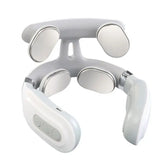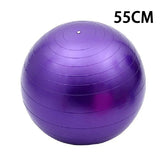Is Overwashing Your Face Bad?
by
Customer Support
19 Sep 2023
Though washing your face daily seems like a no-brainer, there's a lot more to it than you may think. Knowing how often to wash your face and which face wash products to use is crucial in keeping your skin healthy, clear and glowing. Even on days when you choose to go "all-natural" with your skincare routine, dirt, oil, and sweat can collect on your skin's surface. Because of this, washing your face every day using a gentle or mild cleanser is a must for maintaining skin health.
That being said, overwashing your skin can have negative effects. While you want to clear your face of harmful irritants, makeup, and clogged pores, you don't want to strip it of everything living on your skin. Your skin produces healthy oils that help protect it from the bacteria you'll need to wash off throughout the day. Overwashing your face might strip your face of those natural oils and lead to breakouts. So, how much is too much? Keep reading as our Kate Somerville Skin Health Experts reveal the downside of overwashing your face.
What Does Overwashing Your Face Do?
On a typical day, your skin is full of oils and bacteria. However, not all of those oils are harmful. Those oils your skin naturally produces that keep it moisturized also protect it from harmful external irritants like makeup, dirt, and bacteria. When you overwash your face, what happens to your skin?
While washing your face helps your skin remain bacteria-free, too much washing can remove your skin’s natural, helpful oils. If you find your skin feeling dry, tight, and irritated, then it's likely that you've gone overboard. If this is the case for you, take a step back and reevaluate your skincare routine to find out what facial cleansing schedule you should follow.
How Much Face Washing is Too Much?
As a general rule, our skin health experts recommend you wash your face twice a day (morning and night). This of course depends on several variables, including skin type, diet, and your pillowcase's cleanliness. Washing your face in the morning removes any irritants from the night and preps your face for the day ahead.
Washing your face at night is important because it ensures that you cleanse away all makeup, dirt, oil, and bacteria that builds up in the day. These forms of bacteria left on the skin can lead to breakouts or clogged pores.
Ultimately, how often you wash your face comes down to your skin type. Knowing whether you have oily, dry, or combination skin can help determine how often you should be using a facial cleanser. If you wake up to overly oily skin, go ahead and give it a morning wash. On the other hand, if your skin looks and feels dry and flaky upon waking up, we recommend skipping the morning wash.
Be Gentle With Washing Your Skin
If you think you’re overwashing your face, it's time to switch to a more gentle cleanser. Aside from switching up your cleanser, be sure to allow your skin time to restore. Set acne skincare products to the side, revert to washing your face once a day, and keep your skin product-free for a few days. Doing so will allow your skin to reset, restore, and replenish until you have healthy looking skin.
That being said, overwashing your skin can have negative effects. While you want to clear your face of harmful irritants, makeup, and clogged pores, you don't want to strip it of everything living on your skin. Your skin produces healthy oils that help protect it from the bacteria you'll need to wash off throughout the day. Overwashing your face might strip your face of those natural oils and lead to breakouts. So, how much is too much? Keep reading as our Kate Somerville Skin Health Experts reveal the downside of overwashing your face.
What Does Overwashing Your Face Do?
On a typical day, your skin is full of oils and bacteria. However, not all of those oils are harmful. Those oils your skin naturally produces that keep it moisturized also protect it from harmful external irritants like makeup, dirt, and bacteria. When you overwash your face, what happens to your skin?
While washing your face helps your skin remain bacteria-free, too much washing can remove your skin’s natural, helpful oils. If you find your skin feeling dry, tight, and irritated, then it's likely that you've gone overboard. If this is the case for you, take a step back and reevaluate your skincare routine to find out what facial cleansing schedule you should follow.
How Much Face Washing is Too Much?
As a general rule, our skin health experts recommend you wash your face twice a day (morning and night). This of course depends on several variables, including skin type, diet, and your pillowcase's cleanliness. Washing your face in the morning removes any irritants from the night and preps your face for the day ahead.
Washing your face at night is important because it ensures that you cleanse away all makeup, dirt, oil, and bacteria that builds up in the day. These forms of bacteria left on the skin can lead to breakouts or clogged pores.
Ultimately, how often you wash your face comes down to your skin type. Knowing whether you have oily, dry, or combination skin can help determine how often you should be using a facial cleanser. If you wake up to overly oily skin, go ahead and give it a morning wash. On the other hand, if your skin looks and feels dry and flaky upon waking up, we recommend skipping the morning wash.
Be Gentle With Washing Your Skin
If you think you’re overwashing your face, it's time to switch to a more gentle cleanser. Aside from switching up your cleanser, be sure to allow your skin time to restore. Set acne skincare products to the side, revert to washing your face once a day, and keep your skin product-free for a few days. Doing so will allow your skin to reset, restore, and replenish until you have healthy looking skin.
Sample Image Gallery
Sample Block Quote
Praesent vestibulum congue tellus at fringilla. Curabitur vitae semper sem, eu convallis est. Cras felis nunc commodo eu convallis vitae interdum non nisl. Maecenas ac est sit amet augue pharetra convallis.
Sample Paragraph Text
Praesent vestibulum congue tellus at fringilla. Curabitur vitae semper sem, eu convallis est. Cras felis nunc commodo eu convallis vitae interdum non nisl. Maecenas ac est sit amet augue pharetra convallis nec danos dui. Cras suscipit quam et turpis eleifend vitae malesuada magna congue. Damus id ullamcorper neque. Sed vitae mi a mi pretium aliquet ac sed elitos. Pellentesque nulla eros accumsan quis justo at tincidunt lobortis deli denimes, suspendisse vestibulum lectus in lectus volutpate.







